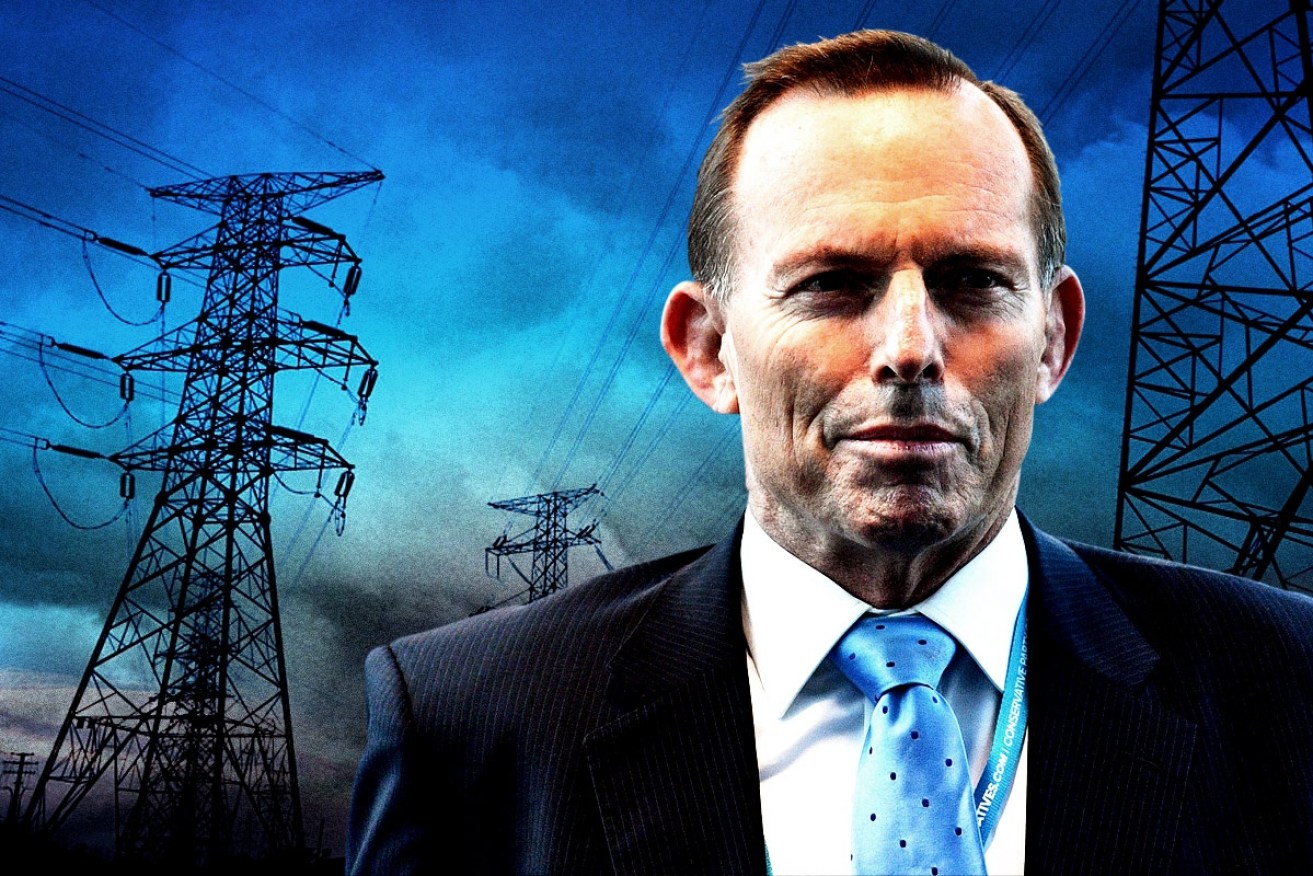Scheming Tony Abbott just loves Bill Shorten’s ‘bipartisan’ climate bid


Tony Abbott harnessed conservative opposition to climate-abatement measures to oust Malcolm Turnbull as party leader. Photo: The New Daily
According to much of the reporting on this week’s release of the Finkel report, which includes a proposed clean energy target, Australia is about to have an outbreak of peace on climate action.
If reports are to be believed, embattled Prime Minister Malcolm Turnbull will be embraced from the left by Labor in the spirit of bipartisanship, while Tony Abbott’s ‘delcons’ will cease their attacks from the right.
This is a rose-coloured interpretation of events, based more on wishful thinking than the facts. In reality, Opposition leader Bill Shorten’s call for a bipartisan approach on energy and climate is a Trojan horse aimed at undermining the PM.
Mr Shorten’s letter to the PM makes a demand for bipartisanship, not an offer, saying “Labor calls on the Government to work with us in a bipartisan approach to put in place the right energy policy for our nation’s clean energy future.”
According to the letter, this would involve giving Labor access to Dr Finkel and departmental officials to help the Opposition assess the report against the ALP’s key principles, and consulting Labor on any subsequent work done to design a Low Emission Target.
Bill Shorten and Labor have done this to change the media narrative from Labor

Bill Shorten: too clever by half?
giving in to the Coalition by abandoning its policy for an Emissions Intensity Scheme, to PM Turnbull acceding to Mr Shorten’s demands for a clean energy target that meets Labor’s criteria.
Yes, Labor wants to turn Mr Turnbull’s win on a CET into a loss. If a clean energy target is successfully established by the Turnbull Government, Labor will claim the credit for it being the next best thing to an EIS. And if the CET fails to get support, it will be because Mr Turnbull “rejected” Labor’s call for a bipartisan approach.
And there’s another dimension to Labor’s use of the CET to undermine Mr Turnbull. By making it look as if the PM could capitulate to Labor on the CET, Mr Shorten hopes to spook the Coalition’s arch conservatives into moving on Mr Turnbull.
Energy Minister Josh Frydenberg has reportedly been trying to avert such an escalation, briefing conservatives to counter concerns that a low emissions target is simply a carbon tax by another name.
But that hasn’t stopped the man who essentially was elected on a lie about a clean energy mechanism from trying to repeat the feat.

Electricity prices may well well spark a Liberal revolt – with Tony Abbott leading the charge.
Back in 2009, Tony Abbott unexpectedly replaced Malcolm Turnbull as Liberal leader by riding a wave of conservative dissent with Mr Turnbull’s support for the Rudd government’s proposed carbon pollution reduction scheme.
Mr Abbott then created voter anxiety by claiming the Gillard government’s carbon price was a carbon tax that would increase the cost of everything, particularly electricity. And he rode that wave to the steps of the Lodge.
Having benefited from aggravating one of voters’ most sensitive points – electricity prices – Mr Abbott isn’t about to throw that advantage away.
Mr Abbott this week said he was anxious that coal-fired power, the “cheapest” electricity, would be dramatically reduced under the Finkel report approach, and that “anything that makes it impossible for us to bank new, efficient coal-fired power stations” was “a big mistake.”
“The Liberal Party has got to be the party of cheap power,” Mr Abbott stressed, adding that “the last thing we want to do is to let Electricity Bill off the hook.” We won’t know until the Coalition’s party room meetings next week whether his call has been heeded or ignored.
The Opposition may think there’s no way it can lose. If Labor gets its preferred CET, it can claim the credit. If it rejects a sub-optimal (eg. coal-friendly) CET, the party can claim kudos for maintaining the high moral ground. And if arch conservatives are spooked enough a prospective CET and topple Malcolm Turnbull, Labor will see any replacement PM as easier to beat.
Yet Labor may come to regret the move, just as Rudd did playing politics with Turnbull 1.0.
Voters may be considerably unhappy once they realise Labor hasn’t been entirely honest in its call for an end to “a decade of toxic politics” on energy and climate change policy. The Opposition may genuinely want the toxic politics to end, but only on its terms.
If the proposal for a CET fails, or Tony Abbott 2.0 (or a protégé) rise from the ashes of a Liberal Party stoush to run another successful fear campaign against climate action, voters will hold Labor at least partly responsible for ruining the best chance Australia had in recent history to integrate its energy and climate action policies.
And by favouring politics over a genuine bipartisan effort, Labor will be held to account for doing nothing to stop the lack of investment and high energy prices resulting from continuing policy uncertainty.








